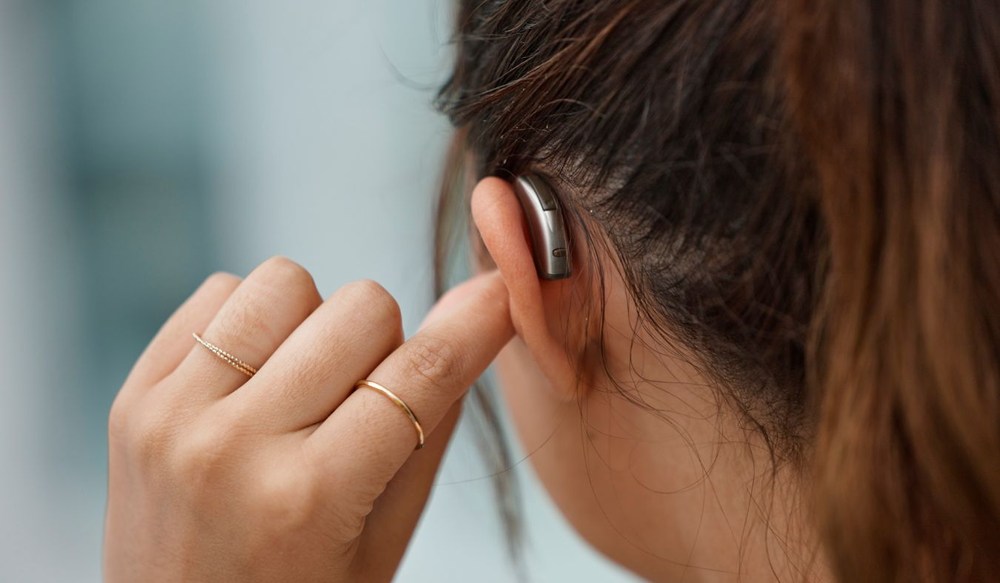Do I Need a Hearing Test? Screening Guidelines After 40
After 40, most of us get more intentional about health maintenance. You

By: admin | November 22, 2024
When you start noticing changes in your hearing, figuring out who to see for help can be unclear. You may come across terms like audiologist and hearing aid dispenser and while both offer support for hearing concerns, they have different backgrounds and responsibilities. Knowing the difference between the two can help you find care that fits your needs. The line between their roles isn’t always obvious but understanding when to see each one can guide you in the right direction. Whether you’re exploring hearing aids, seeking a hearing test or responding to recent changes in hearing, this knowledge can help you make more confident choices.
It’s easy to miss the early signs of hearing loss, especially when changes happen gradually. You might find yourself asking people to repeat themselves more often or feeling like voices are unclear, even in quiet settings. Group conversations may become harder to follow, and background noise might make it difficult to focus. These small frustrations can build over time and start to affect how you connect with others or enjoy daily activities.
Everyone experiences hearing loss differently, depending on factors like age, noise exposure or underlying health conditions. Some people notice a slow decline, while others experience a sudden shift. No matter the cause, untreated hearing loss can lead to social withdrawal, communication challenges or increased fatigue from trying to listen more carefully. Recognizing the signs early and getting support can help you stay engaged in your surroundings and maintain a better quality of life.
Addressing hearing loss begins with awareness and understanding that it’s a common part of life for many people. Taking the time to learn about hearing changes and explore available solutions can make it easier to manage symptoms and stay connected to what matters most. Whether it’s through hearing aids, assistive devices or lifestyle adjustments, early action often leads to better results. Staying proactive helps protect your long-term hearing health and ensures you continue to participate fully in conversations, activities and relationships.
A hearing aid dispenser is someone who works closely with people exploring hearing aids to improve how they hear and communicate. Their role focuses on helping individuals understand their hearing needs and introducing them to devices that offer support. Instead of providing medical evaluations, they concentrate on the practical aspects of hearing aid use. For many, the dispenser is often the first person to make the process of choosing and wearing hearing aids feel more manageable.
You’ll often find hearing aid dispensers in private hearing care offices, retail settings or clinics dedicated to hearing services. Over time, they may become a familiar and reliable part of your care, especially if you return for new devices or adjustments. Many people value having someone who remembers their specific hearing preferences and can provide helpful guidance along the way.
Hearing aid dispensers play a hands-on role in helping you find the right hearing aids based on your specific needs and preferences. They take the time to understand your daily routines, listening goals and any challenges you may be facing. Using the results from your hearing test, they guide you through the available options and help you choose a device that fits both your hearing needs and comfort. Their goal is to make sure you feel confident in your choice and understand how your hearing aids will support you in everyday situations.
Once you’ve selected a hearing aid, the dispenser will program it to match your hearing test results and personal preferences. They’ll show you how to use the device, including adjusting settings, cleaning and charging or changing batteries. Follow-up care is an important part of their work. They’ll check in with you to make sure your hearing aids are working well and make any adjustments needed to improve your experience. Having a hearing aid dispenser as part of your care team helps ensure your devices continue to meet your needs over time.
To become a licensed hearing aid dispenser, individuals must complete specific training and pass both written and practical exams required by their state. These steps help ensure they understand how to test for hearing loss, select appropriate devices and properly fit hearing aids. Most states also require a certain number of supervised hours working with clients before someone can be licensed. This hands-on experience helps build the practical skills needed to support people with hearing loss in real-world situations.
In addition to earning a state license, hearing aid dispensers often take part in continuing education to stay up to date with new technology and changes in the field. Their role focuses on helping people manage hearing loss through hearing aids and related support their credentials reflect that specific area of care.
An audiologist is a type of hearing professional who works with people of all ages to help manage issues related to hearing and balance. They often serve as a first step for individuals who are unsure about changes in their hearing or are experiencing symptoms like ringing in the ears or difficulty understanding speech. Audiologists listen closely to each person’s concerns and use that information to guide care and support.
Audiologists often work in medical offices, hearing clinics, hospitals or even schools. They play a key role in helping people understand what might be going on with their hearing and offer guidance on what steps to take next. Whether someone is experiencing a mild change or a more noticeable hearing difficulty, audiologists are there to help people understand those challenges.
What makes audiologists important is their ability to look at hearing health as part of a person’s overall well-being. They don’t just focus on hearing aids or devices, but also on how hearing affects daily life, communication and personal connection. Their goal is to make sure each person gets care that fits their specific needs and lifestyle.
An audiologist is a hearing professional who works closely with you to better understand your hearing needs. Whether you’re just starting to notice changes in how you hear or have been managing hearing loss for some time, they take the time to learn about your daily life and communication goals. Their role involves listening to your concerns, asking the right questions and helping you make sense of the hearing challenges you’re experiencing.
You can expect a one-on-one approach that focuses on practical solutions to support your ability to hear and communicate more clearly. Audiologists use specialized tools and techniques to get a detailed picture of how you hear. From there, they help guide you through the next steps, whether that means exploring hearing aids, offering support for listening in noisy environments or helping you adjust to hearing changes over time.
Having an audiologist involved in your care also means you have someone to turn to when questions or concerns come up. They provide ongoing support and check-ins so you can get the most out of your hearing solutions. Their goal is to help you stay connected to the people and activities that matter to you, while making sure your hearing needs are understood and managed in a way that feels right for you.
An audiologist is trained to understand how the ear works, how hearing loss can affect daily life and how different solutions may help. Their role often involves working one-on-one with individuals to learn more about their hearing needs, daily routines and communication challenges.
What makes audiologists different is their strong focus on both the science of hearing and how it connects to real-life experiences. They learn how hearing affects everything from conversations with family to performance at work. Because of this, audiologists are often involved in helping people find long-term strategies to manage their hearing loss, rather than just providing short-term fixes. Wherever they practice, they aim to understand each person’s unique hearing situation. This allows them to provide support that is both personal and practical, with the goal of improving how their patients experience the world around them.
Choosing between an audiologist and a hearing aid dispenser can depend on your individual hearing needs and what type of care you are looking for. If you’re noticing changes in your hearing and want a more in-depth understanding of what might be causing it, working with an audiologist could be the right step. They are trained to look at the full picture, including how your hearing may be affected by other health conditions and they can offer a range of solutions based on your specific situation.
On the other hand, if you’re mainly looking for help choosing and adjusting a hearing aid, a hearing aid dispenser may be a good fit. Dispensers are skilled in helping you select a hearing aid based on your test results and personal preferences. They can also program the device to better match your lifestyle and offer follow-up support to keep it working properly. This can be especially helpful if your hearing needs are more straightforward and you’re mainly focused on getting a device that improves daily communication.
Both professionals play a role in hearing care, and the right choice often comes down to your priorities. If you’re unsure where to start, ask questions about each provider’s background and services before making a decision. The goal is to find someone who takes the time to understand your needs and helps you feel more confident in managing your hearing health.
Whether you’re working with a hearing aid dispenser or another type of hearing health professional, it’s important to be patient and proactive. Regularly use your hearing aids, follow the advice of your professional and communicate openly about any issues or concerns. Every step you take brings you closer to improved hearing and a better quality of life.
Understanding the difference between an audiologist and a hearing aid dispenser is a significant step in your process towards improved hearing. Both professionals have unique roles and expertise, but their common goal is to enhance your quality of life through better hearing. Your specific needs and circumstances will guide you in choosing the right professional for your hearing health care.
At Ear Specialists, we are committed to providing personalized care tailored to your needs. Our team of dedicated audiologists are ready to guide you through every step of your process towards better hearing. If you have any questions about the difference between both an audiologist and a hearing aid dispenser, schedule an appointment. Contact us at our Bellevue and Omaha, NE locations by calling us (402) 206-2198.
Tags: audiological care, hearing care services, hearing loss treatment

After 40, most of us get more intentional about health maintenance. You
By: admin | January 19, 2026

A hearing aid fitting appointment is an important step in your hearing
By: admin | November 18, 2025

Hearing loss can sometimes make everyday situations more difficult, and it
By: admin | August 21, 2025
